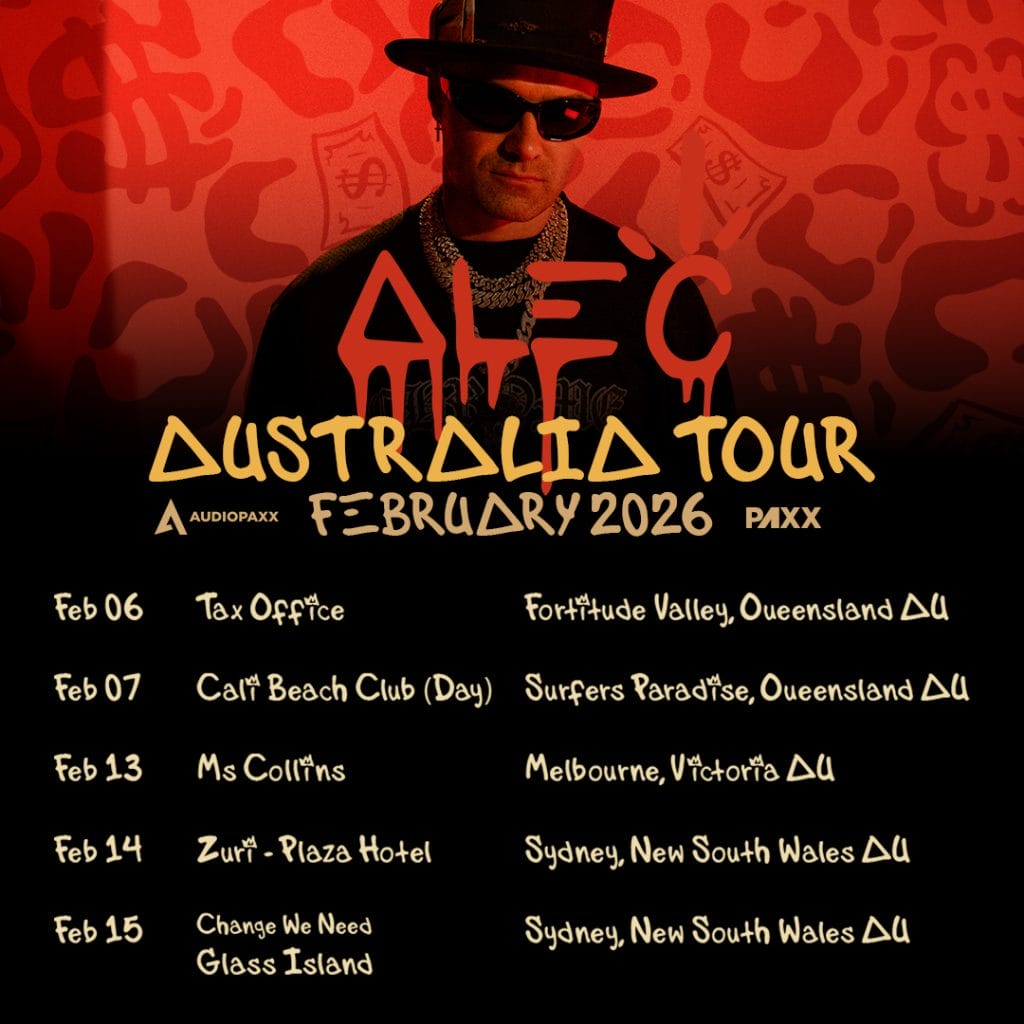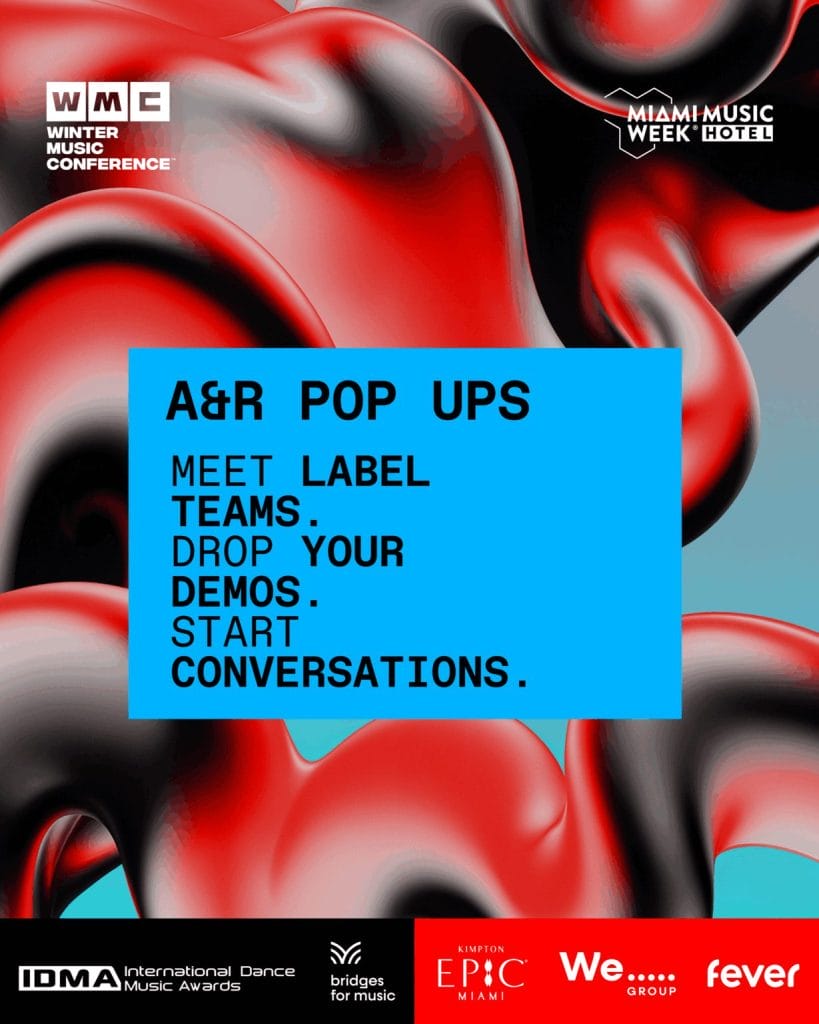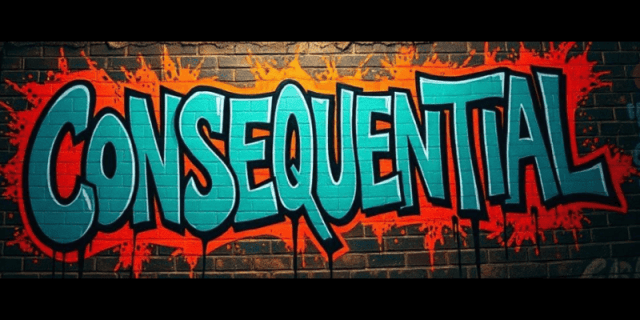As an artist, one of the things I’ve struggled with is breaking away from the crowd.
It’s way too easy to get caught up in trends, or toxic scenes, or expectations from others that keep you from being the best possible artist you can be. I firmly believe that to be a successful artist, you have to find a way to block out the noise and make the best, most authentic music that you can possibly make.
And, that’s exactly what Matthew Houghton, p.k.a. CONSEQUENTIAL, did just a short while ago.
After years of making dubstep and playing in ska, reggae, and punk bands, Matthew burnt out. A fairly toxic experience in the bass music scene led him to reconsider what he wanted to make as an artist. So, he stopped for a while, reflected, and eventually decided that he wanted to make drum ‘n’ bass after finding that his heart leaned in that direction.
Matthew’s story is one that’s all too familiar: finding his own artistic voice after years of catering to other voices is something most every artist has to go through at some point. So, we figured he’d be a great person to talk to about it. If you’re someone who feels unable to break out from the noise and the expectations of others, this interview is absolutely for you. Matthew was there once, and his story is a great reminder that anyone has the ability to follow their heart.
While you read his reflections, take a listen to one of his latest tracks, “Not The Type“. It’s a mellow liquid drum ‘n’ bass tune that he created on by just doing what came to him in the moment – this includes the addition of the vocals, as while Matthew planned on making it an instrumental tune, he found the backing vocal lying around somewhere and really resonated with it. This track is a great example of how following your heart and blocking out the noise can lead your music to new heights.
Let’s start with your musical experience: you’ve got a musical journey that spans punk, ska, reggae, and dubstep. How has that variety shaped the way you approach production today? Plus, what led you to start producing DnB?
I started out in music playing classical Spanish guitar in primary school from around 6 or 7. I did this for a few years before eventually picking up an electric guitar, and, naturally, this opened my ear to adding different effects along the way. I progressed guitar jamming along to tv adverts; this means you must play what is put in front of you and find your way around the instrument but also manage different timings and speeds. Through this and the nuances of heavy distortion and feedback from amps, I discovered you can play the same thing many ways but make it feel different in the space, time, velocity, This is what intrigued me to make more sounds.
With the early punk stuff, it was all 3 or 4 chords and it was all timings and tricks you could add in to fill the void where musicality was lacking; you could still get your point across sonically and minimally but raucously and in your face. Moving into ska, this gave more of a clean sound in places but infused heavier sections and allowed for more elaborate progressions in the material, but kept that sense of feeling in another place and letting the music set the vibe of the show.
Initially with the band side of things, I recorded a lot of our early demos through earbuds into the rec in of a minidisk player to get us more shows. I am sure they were awful, but you made do with what you had, and it got us shows. Broomstick mic stands, duvet sound absorption and out of tune guitars were featured regularly.
Our best ska nights sometimes finished with a DNB party afterwards, and this was the time DNB played through the night in the club and then the fields/woods/quarries, and then reggae/dub rigs came on when the sun came up. It was a magical time but quite short lived. Techno and hard trance became the vibe – not that I didn’t like this but I didn’t have a deep rooted love for it.
Although the band scene was great, you spend a lot of time playing the same thing so my mind naturally wandered into production. I always made music separately on Music 2000 but I didn’t really think this could be my path forward as I preferred to be hands on at this time. I eventually found Cubase SX3, but it was when I got Reason that I found what I needed. A whole customisable rig with endless possibility. From here I started focusing on the production and almost stopped playing instruments altogether and ventured into making heavier dub music.
Then, dubstep became a thing and a movement. This scene was fun and I met some great people, however I found it became very cliquey and I never quite loved what I was making, but it taught me a lot in a sense of production, certainly from a low end and elemental perspective.
I dabbled through future garage/trip hop styles for a while, then decided to pick the pace up one day and I just found it soothing to make DNB, or something that sounds a bit like it at least. I’m also basically entirely in the box these days on Studio One. I used to enjoy plugging in wires and getting things to work constantly but it is laborious and time consuming. I like being able to just make music without faffing. I work hard and time is precious.
You mentioned stepping away to reflect and find your own unique artistic voice. What was that process like, and how did you know when you were ready to come back?
I started to feel a pressure to make music for other people. I’d gotten some airplay and label interest but I couldn’t bring myself to do music I wasn’t fully in love with again, so it got the better of me and induced stress to a point where I needed to step away for a few years to focus on regaining an enjoyment, to focus on just listening to music instead of analyzing it, which is where my head had got to. I pushed myself to listen to anything and everything I could as I’ve never been one for caring of the genre; if it’s a good tune it’s a good tune. But, equally if it’s not, you can appreciate the artistry involved. This, as with all art, is all subjective obviously and only my opinion.
Through this I developed more of a feel for the sounds and styles that stuck with me, which elements sat well with others and how they translate to the environment someone listens in. Music can sound very different depending on mood and location, and this made me think if it is possible to combine juxtaposing feelings in a single track, can you make something relaxing but motivating? Some of the saddest songs give you an overwhelming happiness. Better still, can I take someone’s mind to a place to help ease the tensions of life as so many artists have done for me over the years, and can I give this back? This inquisitiveness led me back to playing with sound and the tracks naturally followed.
There’s always that pressure to “be cool” or fit into a certain mold in music scenes. How do you keep yourself from getting caught up in that?
I’m very random in my music listening. If a tune has a soul, it resonates in me, and the same tune might not be the same with the next person. I have seen many scenes, and they always end up evolving, so I try to keep an open mind on this but also not get caught up in too many fads. This might not be as commercially viable, but it allows me to just make music.
I think this reflects in what you hear. I do struggle to define some of the stuff I make but I generally make music without a genre in mind. It may have a certain beat or tempo, but I also like to add a dash of a few flavors where I can. The sounds that fit come to me in a moment and I take the long approach, and I don’t have any templates or standard mix settings. I just see where the track wants to go.

Do you think electronic music communities today are more open to individuality, or do the same cliques and industry politics still dominate?
I think there’s a bit of both really. Some people like certain things and some like a lot. Some scenes have a certain accepting quality and others gatekeep. It’s going to happen, just maybe not to the extent of mods and rockers or grebos and townies. Theres’s pros and cons to it like anything.
People are definitely more open minded as there is so much choice now but equally it’s easier to sell to a scene or a brand than a track, and that’s what it’s evolved into at a certain level and it’s easier to fit a playlist or set if you sound like someone else. People search for familiarity in music, so this will inevitably exist, but it helps to try to find what you like, not what you think you should – and not just in music.
What role do you think individuality plays in longevity as an artist?
I think if you can create your own sound, people can follow your journey and see the evolution of it. I think it helps me as well, as I’ve seen many people give up because they are not at the top of something, and then the scene moves on and they get lost for ideas or motivation.
Of course, we all have our inspirations; whether it’s the beat, the sound, or the place. If you can use this and try to convey the message or feeling you want to the world using music as a medium, than this will inevitably stay with you longer than any like or click on your track or social media. If someone likes it, it’s a bonus.

Lastly, for artists who are stuck trying to find their own sound, what advice would you give them to break free from the noise and expectations?
I see videos teaching people to get a track and almost copy it to a point where you are making a rehashed version of someone else’s idea, and this is great for learning, but it’s not you as an individual. Much of the learning material out there is based on “if you do this you will sound like this,” and I understand this may generate plays and fame when you get good at it, but I’m not here for that. This may teach you how to do a trick, but nothing lasts forever, and you need to keep on moving.
Music over time has always told a story, and I try to tell my own. You are a product of your surroundings or what you make of them. Try to find the best bits, the raw emotions, the highs, the lows and play them back. Someone else will feel it too.
Stream “Not The Type” here.
The post CONSEQUENTIAL Speaks On The Place of Individuality and Nonconformity In Electronic Music appeared first on Magnetic Magazine.






